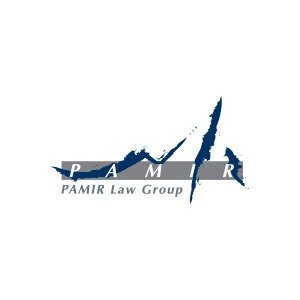Best Business Lawyers in Taiwan
Share your needs with us, get contacted by law firms.
Free. Takes 2 min.
Or refine your search by selecting a city:
List of the best lawyers in Taiwan
About Business Law in Taiwan
Taiwan is a thriving hub in the Asia-Pacific region with a dynamic economy heavily dependent on international trade. The business environment in Taiwan is characterized by its technological innovations, robust manufacturing sector, and growing service industries. To facilitate economic growth, Taiwan has developed a comprehensive legal framework that governs business operations, fostering an attractive environment for both local and international businesses. Business law in Taiwan encompasses regulations on company formation, intellectual property, employment laws, contract management, and more, all designed to ensure fair practices and stable operations.
Why You May Need a Lawyer
Navigating the business landscape in Taiwan can be complex, particularly for foreign enterprises or individuals unfamiliar with local regulations. Here are some common situations where legal help may be necessary:
- Setting up a new company, branch, or representative office.
- Negotiating contracts and partnerships with local entities.
- Intellectual property registration and protection.
- Compliance with local employment laws and hiring practices.
- Resolving business disputes or litigation.
- Adhering to foreign investment regulations and obtaining necessary permits.
- Tax planning and understanding the tax obligations for businesses in Taiwan.
Local Laws Overview
Taiwan implements a set of commercial laws that are fundamental to business operations. Key aspects include:
- Company Act: Governs the formation, management, and dissolution of companies in Taiwan.
- Fair Trade Act: Ensures competitive market practices and prevents monopolistic behaviors.
- Income Tax Act: Details the tax obligations for individuals and corporations.
- Labor Standards Act: Sets forth employment standards, including minimum wage, working hours, and worker rights.
- Intellectual Property Laws: Protects trademarks, patents, and copyrights to encourage innovation.
- Foreign Investment Regulations: Includes procedures and requirements for non-domestic entities investing in Taiwan.
Frequently Asked Questions
What are the requirements to start a business in Taiwan?
You must decide on the company structure, name, business scope, and location, then register with the Ministry of Economic Affairs and obtain licenses specific to your business activities.
Can a foreigner own a business in Taiwan?
Yes, foreigners can own a business wholly or enter joint ventures with local partners, but must comply with relevant foreign investment laws.
How do I protect my business’s intellectual property in Taiwan?
Intellectual property can be protected by registering trademarks, patents, and copyrights with the Taiwan Intellectual Property Office.
What are the labor regulations I need to be aware of in Taiwan?
Employers should adhere to regulations in the Labor Standards Act, covering wages, working hours, leave entitlements, and employee rights.
What kinds of taxes are applicable to businesses in Taiwan?
Businesses in Taiwan are subject to corporate income tax, value-added tax (VAT), and various other local taxes depending on business type and operations.
How can I resolve a commercial dispute in Taiwan?
Disputes can be resolved through negotiation, mediation, arbitration, or litigation, with courts available to settle if alternative methods fail.
Is there a mandatory audit requirement for companies in Taiwan?
Yes, certain companies, like public companies and financial institutions, are required to undergo annual audits by certified public accountants.
What are the restrictions on foreign investment in Taiwan?
While many industries are open, some sectors are restricted or prohibited for foreign investors as detailed in Taiwan's negative list for investment.
How do I comply with environmental regulations in Taiwan?
Businesses must follow environmental protection standards and obtain necessary permits for activities that impact the environment.
What is the process for closing a business in Taiwan?
Closing a business involves liquidating assets, paying off debts, and formally dissolving the entity with government authorities.
Additional Resources
For those seeking further information or guidance, consider the following resources:
- Ministry of Economic Affairs (MOEA) - Offers resources on company registration and business regulations.
- Intellectual Property Office - Provides details on IP registration and protection.
- Taiwan Bar Association - Can help find certified legal professionals experienced in business law.
- Invest Taiwan - A government platform offering guidance on foreign investment procedures.
- Chambers of Commerce - These organizations provide networking opportunities and business support services.
Next Steps
If you need legal assistance in business, the following steps can help:
- Identify the specific legal area where you need support, such as corporate formation or employment law.
- Research and contact attorneys specializing in business law within Taiwan, using resources such as the Taiwan Bar Association.
- Prepare relevant documents and information before consulting with a legal professional to ensure productive discussions.
- Consider reaching out to business consultants or chambers of commerce for additional insights or recommendations.
Lawzana helps you find the best lawyers and law firms in Taiwan through a curated and pre-screened list of qualified legal professionals. Our platform offers rankings and detailed profiles of attorneys and law firms, allowing you to compare based on practice areas, including Business, experience, and client feedback.
Each profile includes a description of the firm's areas of practice, client reviews, team members and partners, year of establishment, spoken languages, office locations, contact information, social media presence, and any published articles or resources. Most firms on our platform speak English and are experienced in both local and international legal matters.
Get a quote from top-rated law firms in Taiwan — quickly, securely, and without unnecessary hassle.
Disclaimer:
The information provided on this page is for general informational purposes only and does not constitute legal advice. While we strive to ensure the accuracy and relevance of the content, legal information may change over time, and interpretations of the law can vary. You should always consult with a qualified legal professional for advice specific to your situation.
We disclaim all liability for actions taken or not taken based on the content of this page. If you believe any information is incorrect or outdated, please contact us, and we will review and update it where appropriate.
Browse business law firms by service in Taiwan
Taiwan Attorneys in related practice areas.
Browse business law firms by city in Taiwan
Refine your search by selecting a city.
















